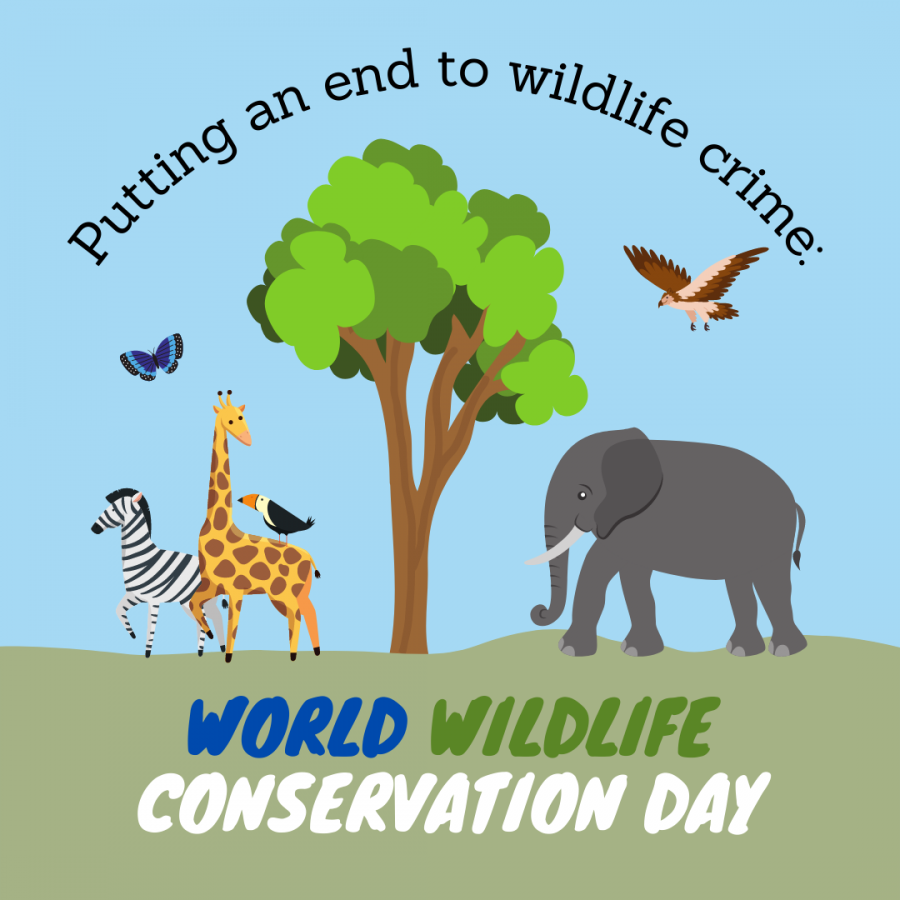Putting an End to Wildlife Crime: World Wildlife Conservation Day
December 9, 2021
Saturday, Dec. 4 marks the 10 year anniversary of World Wildlife Conservation Day. Originally established in 2012 by Hillary Clinton, U.S. Secretary of State at the time, this holiday aims to raise awareness for the global wildlife trafficking and poaching epidemic and engage conservationists in the fight against wildlife crime.
Despite the numerous synthetic alternatives to wildlife products, such as ivory and animal skins, poachers continue to acquire and sell wildlife products on the black market. Consequently, animals such as elephants, rhinoceroses, tigers, sea turtles, lemurs and gorillas are all on the verge of extinction.
“[Poaching and wildlife trafficking] can lead to the extinction of a species,” Miami Palmetto Senior High School AP Biology and Marine Science Honors teacher Sarah Israel said. “For example, with sea turtles, people hunt them for their shells, so you have to educate the public that you can buy them synthetically-made, but don’t buy the real thing because then you’re supporting that market.”
Uncontrolled hunting of one species may not seem to have a very far-reaching impact, but a chain-reaction of issues can occur within the animal’s habitat as a result. By lessening or removing a habitat factor, the balance of predator and prey populations can tip severely.
“A classic example is the otters in California who have beautiful, thick coats, and about 100 years ago they were almost hunted to extinction,” Israel said. “When the otter population went down, the sea urchin population went up; sea urchins eat kelp and because their population went up, the kelp forests were nearly wiped out, almost destroying an entire habitat.”
Wildlife crime impacts not only wild animals but humans as well. In regions where locals are reliant on wildlife to sustain tourism — and thus, their livelihood — already- impoverished communities are falling further into destitution.
However, as wildlife advocacy continues to expand and governments pass more laws to deter poaching, some species are seeing rises in populations. Though the process is slow, calls to action such as World Wildlife Conservation Day are taking the necessary step towards healing.
“People might not realize that certain animals are endangered or threatened,” Israel said. “By raising awareness, they might be more willing to become a part of the solution.”








